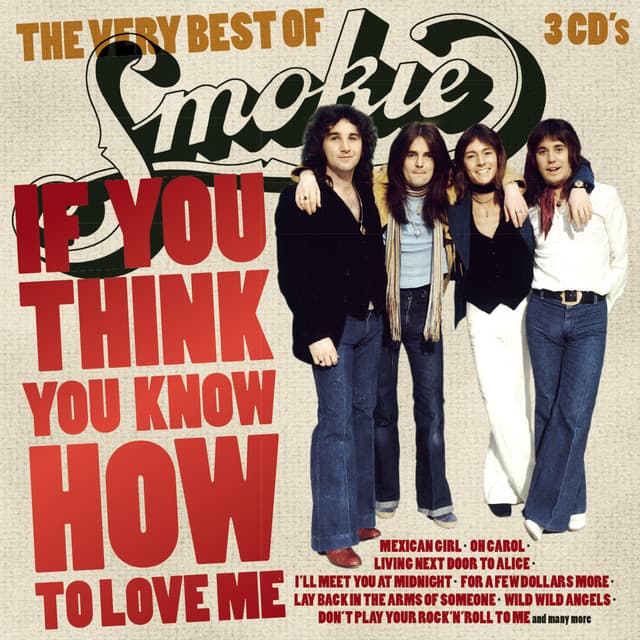
The Rough Voice and the Soft Sell: Smokie’s First Sweetheart Serenade
For those of us who recall the mid-1970s pop landscape, the name Smokie conjures up a very specific sonic image: acoustic strumming, gentle harmonies, and the uniquely gravelly, yet tender, lead vocal of Chris Norman. They were a curious fit for the era—too earnest for the dying embers of Glam Rock, too refined for raw Pub Rock, yet utterly perfect for the emerging sound of sophisticated soft-rock that captured hearts across Europe. Their breakthrough moment arrived in 1975 with “If You Think You Know How To Love Me,” a song that finally transitioned them from a struggling Yorkshire band to international stars.
Released in June 1975, the single was a triumph, a critical piece of the Smokie legacy that firmly established their commercial viability. In the band’s native United Kingdom, the song climbed steadily up the charts, eventually peaking at Number 3 on the UK Singles Chart during a significant nine-week run. The success was even more profound across the continent, where their brand of melodic pop-rock resonated deeply. It hit Number 2 in Ireland, Number 3 in Sweden, Number 6 in Norway, and Number 8 in Germany, setting the stage for their phenomenal European dominance for the rest of the decade. The song was the jewel in the crown of their second album, Changing All the Time, proving that the band had found their true voice and direction.
The story behind this smash hit involves a legendary—and often polarizing—powerhouse songwriting duo: Nicky Chinn and Mike Chapman. Known primarily as the architects of the Glam Rock sound, having penned monstrous hits for Sweet, Suzi Quatro, and Mud, Chinnichap’s work with Smokie demonstrated an unexpected, quieter dimension to their craft. After Smokie’s first single, “Pass It Around,” failed to chart significantly despite a massive marketing push, the band was under pressure. Chapman and Chinn wisely pivoted, moving away from a harder rock sound toward the acoustic texture and strong vocal harmonies that would become the band’s trademark. “If You Think You Know How To Love Me” was the perfect vehicle for this change. The producers used Norman’s distinct, husky vocal—a sound unlike anything else on the radio—and layered it over a deceptively simple, instantly memorable melody.
Lyrically, the song is a mature, candid, and deeply reflective meditation on the risks and rewards of true romantic commitment. The narrator doesn’t offer flowery promises but poses a challenge: “So if you think you know how to love me, / And you think you know what I need, / And if you really, really want me to stay, / You’ve got to lead the way.” It’s a plea for partnership, a recognition that the chaotic, “wild wild side of life” they’ve been living requires a steady hand and genuine understanding to continue. It beautifully captures that crucial moment in a relationship when the reckless passion gives way to a serious assessment of a future built together.
For many of us who remember those days, the opening, gentle guitar chords of “If You Think You Know How To Love Me” are an immediate trip back to a time of soft focus and innocent romance. It was the quintessential ‘making out’ song, a track played repeatedly on slow dances and car radios. It signaled the arrival of Smokie not as a momentary flash of pop brilliance, but as a group that could deliver enduring, melodic storytelling straight to the heart.